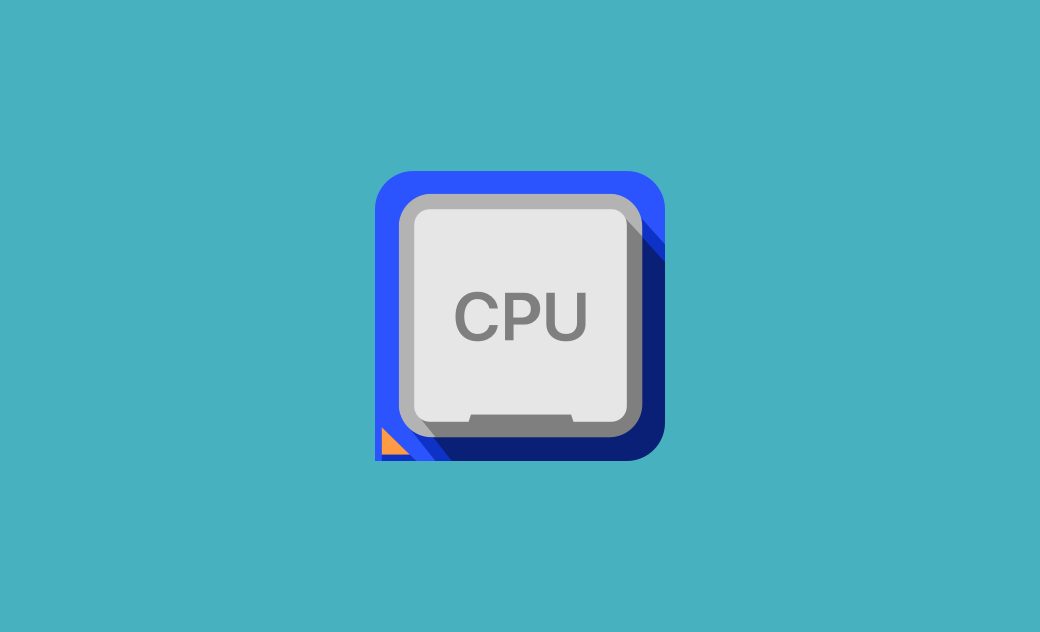How to Check and Reduce CPU Usage on Mac
If your Mac is slow to start or applications are lagging, you may need to check your Mac's CPU utilization. In this blog post, we will show you how to check the CPU usage on your Mac.
What Is a CPU?
CPU, short for Central Processing Unit, is the brain of a computer. It interprets computer instructions and processes data in computer software.
CPU usage will constantly change with your activities on the computer. When the CPU usage is close to 100%, you will find that the computer starts to freeze.
Keep reading if you want to know how to check the CPU usage on Mac.
How to Check CPU Usage on Mac
1. How to Check CPU Usage with Activity Monitor
The Activity Monitor shipped with macOS can help you monitor the status of every process on your Mac. Not only can you use it to see the usage of CPU, memory, and disk, but you can also use it to force quit the apps that are using the most CPU power. Here are the steps.
- Open the Activity Monitor via Spotlight or Launchpad.
- Click the CPU tab to view all the processes that are using CPU power.
- Click the %CPU column to see which processes are using the most CPU power.
- To show the CPU usage on the Dock, right-click the Activity Monitor icon in the Dock, hover your mouse over the Dock Icon, and choose Show CPU usage.
2. How to Check CPU Usage with Terminal
Alternatively, you can use Terminal to check the CPU usage on your Mac quickly. However, this method only allows you to see the CPU utilization, and you don't know which process consumes the most CPU power.
Here's what you need to do:
- Open Terminal via Spotlight or Launchpad.
- Paste and run the command:
top -l 2 | grep -E "^CPU", and you will see the CPU usage in percentage.
3. How to See CPU Usage in the Menu Bar
CPU load is the number of processes executing or waiting for the CPU to execute. As mentioned above, you should avoid a 100% CPU usage situation. BuhoCleaner Menu is a handy tool for monitoring CPU load in real time from the menu bar. When you find that the CPU load is too high, you can react quickly and then take steps to reduce CPU usage, such as killing CPU-hogging processes, disabling unnecessary startup programs, closing unused applications, etc.
How to Use BuhoCleaner Menu to Check CPU Usage:
- Download and install the free version of BuhoCleaner.
- Launch it and find the BuhoCleaner Menu's widget in the status menu.
- Click on the widget to see the CPU load. If you want to monitor the CPU load in the status menu in real time, go to BuhoCleaner's Preferences and then tick CPU Load.
Related Article: 5 Best Mac Performance Monitors in 2024
How to Lower CPU Usage on Mac
1. Stop Extraneous Processes
With Activity Monitor, you know processes that consume the most CPU usage. The next thing you need to do is stop the extraneous processes.
Here are the steps:
- Highlight the processes you want to kill.
- Click the Cross button at the top of the Activity Monitor to end them.
2. Close Unused Windows and Apps
In Activity Monitor, you may notice a process named WindowServer. It takes a large part of your CPU resource. But to your disappointment, you can't stop it completely. So what is it?
Apple says that WindowServer is a single point of contact for all applications. The amount of CPU it consumes is directly related to the number of windows and apps you have open on your Mac.
Therefore, close all the apps and windows you don't use in a timely manner.
Related Article: WindowServer High CPU and Memory Usage on Mac? Here's the Fix
3. Restart Your Mac
If your Mac's performance drops due to 100% CPU usage, a quick restart may fix your problem.
Just click the Apple menu and choose Restart.
Conclusion
That's it. It is easy to check and reduce the CPU usage on your Mac. If you don't want your Mac to run lagging, you should avoid the situation where the CPU usage exceeds 100%. BuhoCleaner Menu can help you monitor the CPU load in real time, don't forget to give it a shot.
By the way, BuhoCleaner is one of the best Mac cleaners. It can help you clean and optimize your Mac in a few clicks. Try it out yourself.
Wendy Wu is a tech enthusiast with a deep passion for all things iPhone, iPad, and Mac. Wendy is always on the lookout for Apple products and is committed to providing Apple users with some of the latest information and useful tips.
